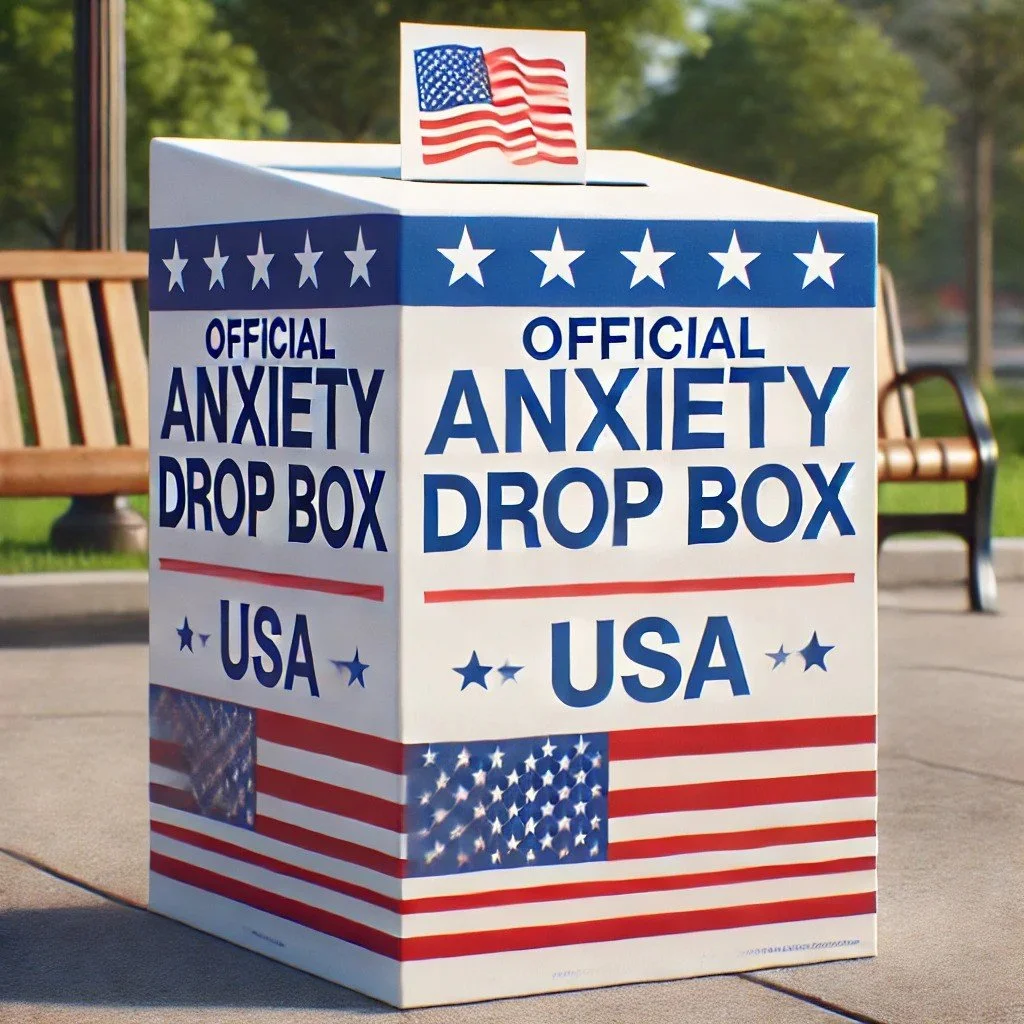How to Keep a Friendship from Draining You
Friendships are some of the most valuable relationships we have. In fact, having solid friendships is one of the most significant predictors of health. Most of the time, they're meant to be uplifting and supportive. But sometimes, they can become one-sided or draining. You may find yourself constantly offering emotional support or fixing problems while receiving little in return. This imbalance can leave you feeling exhausted, and over time, it can affect your well-being. Here's how to recognize, contain, and reclaim your energy from draining friendships.
Recognizing an Unbalanced Friendship
Before you can fix a draining friendship, you need to recognize when a friendship has become unbalanced. Here are a few signs to watch for:
You're Always the Listener. If your friend often unloads their problems on you but rarely asks how you're doing, the friendship may be one-sided.
Emotional Fatigue. After spending time with your friend, you feel emotionally drained, anxious, or overwhelmed.
Constant Caretaking. You might feel like you're always in a caretaker role. Whether it’s offering advice, solving problems, or helping out with their daily struggles, you're the one giving. While helping friends is normal, when it's all give and no take, it can drain your energy.
Feeling Guilty About Boundaries. If you feel guilty or anxious about saying "no," it might be a sign that the friendship is unbalanced.
This type of dynamic is sometimes referred to as dealing with an "energy vampire"—a person who drains your energy without giving much in return. If you've been wondering how to stop an energy vampire or how to end a draining friendship, it may be time to take action.
Consider How You're Contributing To The Problem
Relationships take two people. Draining friendships usually result from two components: one person whose needs are constantly the focus, and another who isn't comfortable voicing theirs.
Often people who fall into emotional caretaking aren't very comfortable voicing their own needs. If you're feeling taken advantage of, ask yourself if you've even tried to take up any space in the friendship. Is it possible this person would care deeply if they know what was going on in your life? Would they be surprised that you haven't shared things with them? It's important to recognize how you might be contributing to the dynamic by withholding.
Step One To Reclaim Your Energy From A Draining Friendship: Pull Back On Caretaking
It’s natural to want to help a friend in need. Generosity and care are the foundation of deep relationships. But constant caretaking leads to resentment, burnout, and damage to the friendship. Caretaking, in this sense, refers to stepping into a role where you are always solving problems or offering support without reciprocation. This creates dependency and often prevents both you and your friend from growing.
We've all had a friend who is always in crisis: if it's not a bad relationship or work stress, it's family drama or money problems. Every time you meet, the conversation revolves around their problems, and you find yourself offering solutions or support. But when you need to talk about something going on in your own life, the friend is either too busy or uninterested. Over time, you feel drained and unappreciated.
By stepping out of the caretaker role, you allow the friendship to become more balanced. You’ll also protect your energy and emotional health, which is essential for your own well-being.
Setting Healthy, Compassionate Boundaries
Quitting caretaking isn't easy. But it's necessary. The key to maintaining a balanced friendship is setting boundaries that allow you to support your friend without sacrificing your energy. These boundaries should be firm but compassionate, giving you both space to maintain a healthier dynamic.
Here are ways to set compassionate boundaries:
Limit the Time You Spend on Their Problems
If every conversation becomes a therapy session, it’s time to set limits. Try to guide the conversation away from their problems once you’ve offered support.
Example: “I know you’re going through a lot, and I’m here for you, but I also want to talk about some things going on in my life. Can we switch gears for a bit?”
Say No Without Guilt
Guilt is natural when you care about someone. Saying “no” is one of the hardest but most important boundaries you can set. You are not responsible for fixing your friend's problems, and it’s okay to protect your own time and energy.
Example: “I’m not able to help you with this right now, but I can listen for a bit tomorrow afternoon if that would help.” "This sounds really hard, and I'm so sorry you're going through this. I'm going through some things myself and I'm not able to support you right now."
Encourage Independence
If your friend is overly reliant on you, encourage them to seek help from other sources, whether it’s a therapist, a support group, or other friends. This takes some of the pressure off you and helps them become more self-reliant. But more importantly, it reminds them that they are responsible for their own wellbeing. If you always fix the problem, they'll only learn to keep coming to you. Empowering them to care for themselves is the best long-term solution.
Example: “I think this might be something that would be helpful to talk about with a therapist. I’ve found it really helpful for myself when I’m overwhelmed.” Or, "What do you think the solution is here?"
Protect Your Emotional Space
If your friend has a habit of calling or texting you during times when you need space (such as late at night or during work), be clear about when you’re available.
Example: “I’m not available to talk after 9 PM. Can we schedule a time during the day?”
When Is It Appropriate To Set Boundaries?
It is always appropriate to set boundaries. Boundaries are the critical distance from which both of you can get your needs met. Even if a friend is going through a very difficult time, you can't be available 24/7. You are first and foremost responsible for your own wellbeing.
Expect A Reaction To Your Boundaries
Hopefully, your friend is understanding when you set a boundary. But it's good to be prepared in case they're not. Your friend may become emotional or try to guilt you into changing your mind. They may be angry and withdraw. This might make you feel guilty and question your decision; don't. Because...
Remember, Boundaries Are Meaningless if You Don't Enforce Them
The best boundary is useless if you don't follow through. Telling your friend you're not available after 9pm is pointless if you pick up the phone when they call at 9:20. Enforcing boundaries can be even harder than setting them, so be prepared with a plan for if they are challenged.
When Is It Time To End A Draining Friendship?
Sometimes, despite your best efforts, a friendship continues to drain your energy. Your boundaries go ignored or are repeatedly challenged. This isn't behavior that happens in a healthy friendships. You shouldn't have to feel depleted. If setting boundaries doesn’t help, or if they ignore or challenge that boundary constantly, it may be time to step away from the friendship.
Example: “I value our friendship, but I’ve been feeling drained and overwhelmed lately. I need to take a step back to focus on my own well-being.”
How to End a Draining Friendship
Sometimes, despite setting boundaries and trying to balance the relationship, a friendship can remain emotionally exhausting. When that happens, it might be time to consider ending the friendship. This can feel uncomfortable, but remember that prioritizing your emotional well-being is important.
Here are some steps to help you gracefully end a draining friendship:
Reflect on the Decision
Before taking any action, reflect on why you want to end the friendship. Is it because you feel consistently drained, unsupported, or unappreciated? Or have you simply not voiced your own needs and troubles? Being clear on your reasons will give you confidence and clarity in the next steps. Make sure it's a well-thought-out decision, not one made in the heat of frustration.
Example: “I’ve realized that this friendship has been taking a toll on me. After giving it some thought, I believe it’s best for my well-being to step back from this relationship.”
Communicate With Compassion
When you're ready to end the friendship, have an honest but compassionate conversation. It’s best to express how you feel without placing blame. Let your friend know that the relationship is no longer working for you, while also being respectful of their feelings.
Example: “I value the time we’ve spent together, but I’ve been feeling drained lately and need to prioritize my own well-being. I think it’s best for both of us to take some space and move forward separately.”
Set Firm Boundaries
If you're ending a friendship due to the other person's constant emotional dependence or negativity, it’s important to set clear, firm boundaries during the conversation. This means being upfront about your decision and not leaving room for ongoing communication if that’s your goal.
Example: “I don’t think it’s healthy for me to continue this friendship. I need to focus on my mental health, and I’d appreciate it if we didn’t stay in contact for a while so I can focus on that.”
Let Go of Guilt
Ending a friendship can come with feelings of guilt, especially if you’ve been in a caretaker role for a long time. Remember that you’re not responsible for your friend’s happiness or emotional well-being. Taking care of yourself is not selfish; it’s necessary for your own mental health.
Example: “I’ve done my best to be supportive, but I’ve realized that this dynamic isn’t healthy for me. It’s important for me to step back, even though it’s hard.”
Move Forward with Compassion
It’s important to be compassionate, both to your friend and to yourself. Ending a friendship doesn’t mean you don’t care about the person; it just means you’re protecting your energy. Moving forward, allow yourself space to heal and reflect on how you can cultivate healthier relationships.
Example: “This has been a difficult decision, because I care about you deeply. I hope you understand that I’m making it for my own well-being. I wish you all the best moving forward.”
When It’s Time to Let Go
Ending a draining friendship is never easy, but there comes a point when it’s necessary for your emotional and mental health. If you’ve tried setting boundaries, and the relationship continues to be unbalanced or exhausting, it might be time to part ways. Keep the conversation honest and compassionate, and remember that it’s okay to prioritize your well-being. By doing so, you create space for healthier, more balanced relationships in your life.
How Therapy Can Help With Difficult Relationships
If you’re struggling to set boundaries or find yourself drawn to unbalanced friendships, therapy can be an excellent resource. Working with a therapist can help you:
Identify patterns of caretaking in your relationships
Build self-awareness and emotional resilience
Learn how to set and maintain healthy boundaries
Overcome the guilt or anxiety that often comes with saying “no”
In holistic therapy, you’ll focus on balancing your mental, emotional, and physical well-being. With these in place, you won’t sacrifice your own needs to maintain a friendship. You can also explore the deeper reasons behind why you might feel responsible for caretaking or afraid to set boundaries.
Moving Forward with Balanced Friendships
Friendships should be a source of joy, support, and mutual growth—not exhaustion. By learning how to set boundaries, you can maintain more fulfilling relationships.
Whether you’re dealing with a difficult friend, wondering how to stop an energy vampire, or trying to figure out how to end a draining friendship, taking care of yourself is just as important as supporting others. You deserve friendships that uplift, not drain, you.
Therapy For Millennials and Gen Z In California
If you’re ready to explore how therapy can help you create healthier relationships, consider reaching out for support. With the right tools and strategies, you can build friendships that nurture you, without the emotional burnout.
























